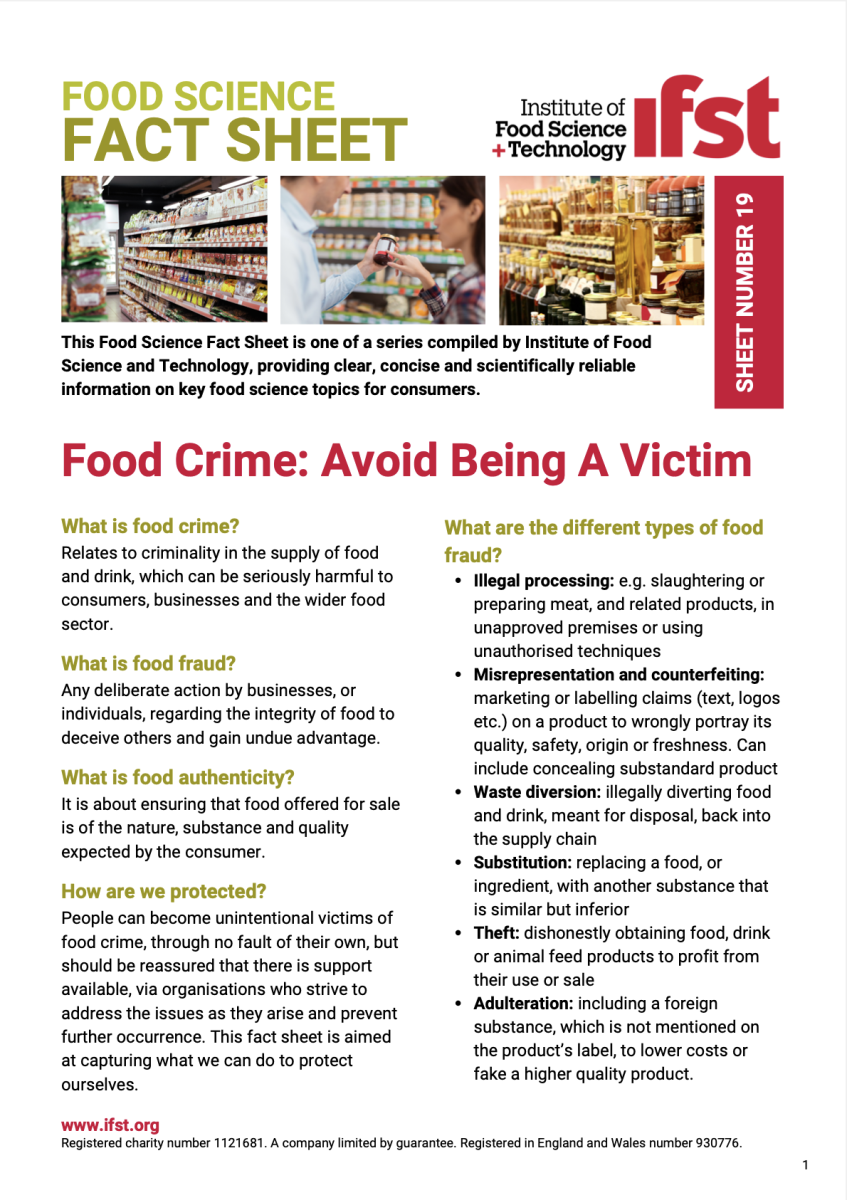
Food Science Fact Sheets have been compiled to provide clear, concise and scientifically reliable information on key food science topics. They aim to provide the public or lay reader with a basic understanding of scientific principles. If you have any questions about the series or would like to discuss the content of any of the Food Science Fact Sheets, please contact us!
SugarsIFST's Food Science Fact Sheet on Sugars answers the
|
Hand Hygiene |
Date Labelling of Pre-Packaged FoodIFST's Food Science Fact Sheet on Date Labelling of Pre-Packaged Food answers the following questions:
|
Food AdditivesIFST's Food Science Fact Sheet on Food Additives answers the following questions:
|
Food AllergyIFST's Food Science Fact Sheet on Food Allergy answers the following questions:
|
Food and Drink PackagingIFST's Food Science Fact Sheet on Food and Drink Packaging answers the following questions:
|
Food Hygiene RatingsIFST's Food Science Fact Sheet on Food Hygiene Ratings answers the following questions: |
Food WasteIFST's Food Science Fact Sheet on Food Waste answers the following questions: |
Sensory and Consumer ScienceIFST's Food Science Fact Sheet on Sensory and Consumer Science answers the following questions: |
Food PreservationIFST's Food Science Fact Sheet on Food Preservation answers the following questions: |
UK Allergen Labelling Amendment 2021IFST's Food Science Fact Sheet on UK Allergen Labelling Amendment 2021 answers the following questions: |
Gut Health and the MicrobiomeIFST's Food Science Fact Sheet on Gut Health and the Microbiome answers the following questions:
|
Protein Food SourcesIFST's Food Science Fact Sheet on Protein Food Sources answers the following questions: |
Safe Heating of FoodIFST's Food Science Fact Sheet on Safe Heating of Food answers the following questions:
|
Food ProcessingIFST's Food Science Fact Sheet on Food Processing answers the following questions: |
Fats and OilsIFST's Food Science Fact Sheet on Fats and Oils answers the following questions:
|
Safe Handling of Meat and SeafoodIFST's Food Science Fact Sheet on the Safe Handling of Meat and Seafood answers the following questions:
|
Cereals and Ancient GrainsIFST's Food Science Fact Sheet on the Cereals and Ancient Grains answers the following questions:
|
Food CrimeIFST's Food Science Fact Sheet on Food Crime answers the following questions:
|










